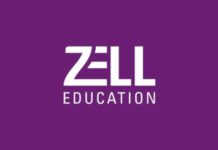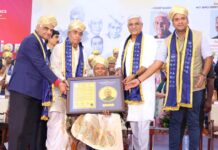The National Curriculum Framework for School Education has been recently released by the NCERT. The NCF focuses on developing a child-centred approach and to promote universal enrolment upto the age of 14. The NCF recognises the importance of life skills in today’s world and aims to equip the students with the necessary skills required to navigate the challenges of modern society. These skills include problem-solving, critical thinking, communication and collaboration.
The Education Times caught up with Ms Latha Gangadharan, Founder of TALC- The Alternative Learning Community about this and she feels that alternative schools like hers are more equipped to implement the NCF.
Excerpts of the interview:
The Education Times: What according to you are the challenges of implementation of NCF?
Latha Gangadharan: The biggest challenge in the implementation of the NCF will be changing the mindset of parents and other stakeholders. We as a country are used to seeing academics and learning from a certain perspective for the last many decades. Changing to a new mindset will bring fear, uncertainty, and confusion and all this leads to uncertainty about how good or effective is NCF.
The next challenge is to implement the spirit of the NCF which is all about understanding each child as an individual. With the kind of classroom system that is currently prevalent in our country, it will be a humungous task to give attention to children individually, by teachers who are already stretched in resources.
We are used to a sense of validation through evaluation and shifting to intangible qualitative methods of measurement may be difficult for stakeholders especially parents to understand.
The Education Times: Advantages that alternative schools have over regular for implementing NCF
Latha Gangadharan: Alternative schools are used to having small numbers of children to work with and hence personalised attention to children is already a set method and hence they can take it on.
Parents who have chosen alternative schools are more open to the idea of intangible growth and support than mark sheets and grading systems.
Also, the ecosystem of alternative schools is far more open to new ways of working as their priority is always giving a better learning process for children than about following any set systems.
The Education Times: Does it make alternative schools more equipped to implement NCF?
Latha Gangadharan: Yes, it makes alternative schools more equipped to implement NCF for the following reasons:
The attitude towards education and learning is more philosophy driven than system driven
The size of the institutes and the overall number of children, enable the effective implementation of the policy
Alternative schools have always prioritised a multi-intelligence approach, especially in terms of prioritising art, social and value-driven approach
Alternative schools have a very healthy eco-system set with experts from various walks of life coming together to provide children with a holistic learning experience.
The Education Times: What about the gap between alternative and regular school with NCF?
Latha Gangadharan: The gaps or difference between the alternative and regular school starts right from the philosophy to learning and education. Regular schools as on today is about data accumulation and evaluation by method of reproducing the answers as expected by the authorities. In alternative schools, the objective is to evaluate the effectiveness of the content taught and how children take to it.
Another difference is the qualitative and quantitative approach to measuring the effectiveness of the learning process. Regular schools are happy when there is tangible grading system and when it is possible to slot the child’s learning into any of the grade. Alternatives schools are also comfortable not having to worry about being able to slot the child in existing systems.
The role of each stake holder and the expected deliverable from the system also varies. Teachers in a regular school are expected to deliver content in the prescribed manner and their effectiveness as a teacher is measure in how much a student is able to reproduce. This is not the case in an alternative school. The measure is on how much the child takes to the learning process.
The Education Times: What is the core differentiator that will emerge between schools to implement NCF?
Latha Gangadharan: The ability to adapt to the new way of thinking and being able to understand and imbibe the spirit of NCF in everyday learning will be the key differentiator.
The Education Times: Why schools like yours are already doing this even before it is becoming a rule?
Latha Gangadharan: Schools like TALC had already sensed the ineffectiveness, irrelevance and hence the frustration that the old colonial way of learning was causing to the young, vibrant and intelligent generation that our country has.
Hence we got down to addressing this as the generation is looking for an outlet to express their innate intelligence and their thirst for other key aspects of life like art and music which adds and enriches learning. Hence people like us got down to doing it though it was against the norm.






























